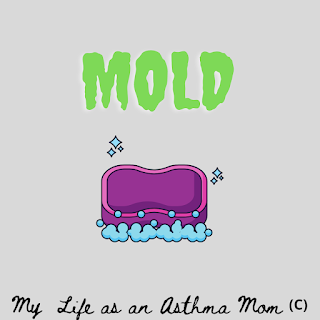Cleaning Up After Water and Mold Damage
This is one of those words that can strike fear in people
Mold
For those of you who have had mold in an apartment or home, I get it. I do.
I had black mold in my first two homes.
I've attended many in-depth trainings for my environmental health job. And I now help other families with evidence based interventions. (And a few stories about our experiences thrown in.)
Here are some basic things I learned along the way:
Health Effects of Mold
Mold can irritate the throat, lungs, eyes, skin and nose. It can also cause an asthma flare. When we found black mold in our play room, our daughter had just been discharged from the hospital after a battle with pneumonia.
Can I link it to the mold? Maybe?
You don't need to "test for mold"
The Environmental Protection Agency (EPA) says:
"In most cases, if visible mold growth is present, sampling is unnecessary."
When we had mold in our first home (20 years ago), the disaster cleanup company wouldn't allow their staff to fix our home until they knew what type of mold we had. We had to hire an Industrial Hygienist to take an air sample.
It cost us $1,000 - and insurance wouldn't cover it.
I later learned that the EPA does NOT have federal limits for mold. So save the money you would spend on testing and use that money to fix the problem.
Call your insurance company
Take photos of the damage and call insurance.
It seems they have a habit of NOT wanting to pay for damages.
They told us a storm that flooded our basement was "An Act of God", so we were on our own.
Find the source of the water leak.
It drives me crazy when people just paint over the water damaged area.
Y'all know that if it's still leaking, it's going to keep damaging that area, right?
Discarding damaged materials
Anything that is porous is going to be VERY hard to clean (couches, drywall, ceiling tile, etc.) It's best to toss it. Hard surfaces can usually be scrubbed clean.
Cleaning it up yourself
The EPA recommends calling in a professional if the area is bigger than 10 square feet.
Ditto if sewage water is present.
Get the right gear
You don't want to be breathing in mold spores, so CDC recommends wear an N-95 respirator that fits properly.
Protect the other areas by wearing goggles, a long sleeved shirt, protective gloves, long pants and waterproof boots.



Comments
Post a Comment